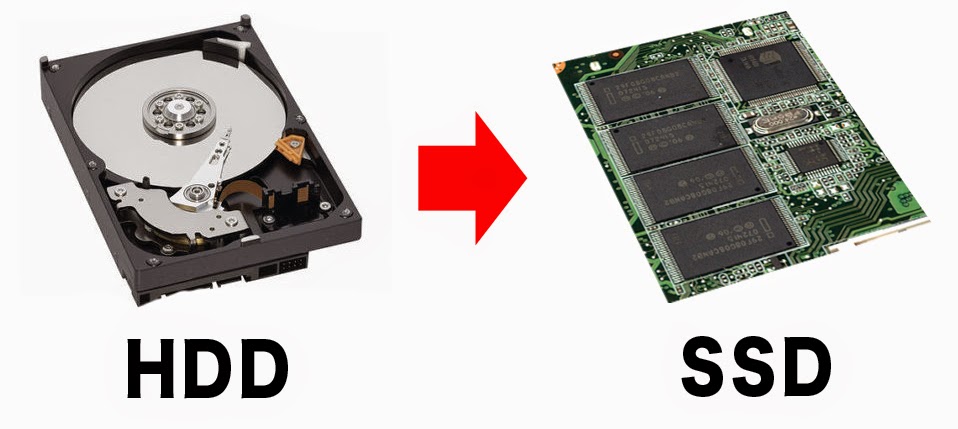How many different types of storage drives do you know are there now in the market? Hard drives are all the same? Not exactly. The most popular PC storage options include HDD, SSD and hybrid drives. What's the difference between the two peripheral accessory and which one are you using right now? Here are the basic knowledge about the drives which may help you figure out the best choice.
Usually, the laptop, desktop or Ultrabook we buy come with already selected file storage. The main drive for ultrabook is SSD while every other laptop or desktop has a hard disk drive. We can configure our system with either an HDD, SSD, or in some cases both.
HDD or hard drive disk is the default storage component for desktop or laptop. The storage is nonvolatile and will not "go away" like the data on the system memory when we turn the system off. The magnetic coating on the metal platters of the hard drives help store the data. The read/write heads will travel over the platters’ surfaces to record data.
SSD or solid-state drive, similar to HDD, connect to a system via SATA interface and it stores data just as any other drive does. SSD eschews the magnetic platters and read/write heads of hard-disk drives in favor of nonvolatile NAND flash memory. It offers much better performance in read/write speed.
Both of the two drives can boot our system, store files and application, yet they have different features. Let’s take a look at the advantages and disadvantages of the two different hard drives.
HDD is less expensive when it comes to the dollar per GB. For an internal 2.5’ drive with the same form factor and storage space of 1 TB, HDD one costs about $70 yet SSD one doubles that to $140. The difference in the price has much to do with the fact that HDD is much older and the technology for SSD is still new. Once the technology for SSD becomes mature, the price difference will be little.
SSD can offer storage up to 4TB, yet it is still rare and costs more. The common SSD can offer storage of 500GB or 1TB, but that is still not enough. Users need more storage. The more storage capacity, the more data we have on the PC. Though now we can use cloud for sharing files, we still need to buy the local storage, especially the less expensive one.
SSD outpaces HDD in write/read speed. PC with SSD can boot in seconds, lunches apps faster and has very faster performance. Speed counts a lot when we use computer for fun , business or school.
SSD is recommended in the case of durability. With no moving parts, SSD can keep our data safe in case that the system is shaken while it is still operating.
Now hard drives are more plentiful. We can see a lot of HDD models from different computer peripheral brands. For PCs and Macs, internal HDD won't be going away completely in recent years. The choice for HDD is more than that of SSD. HDD is still the main storage device in PCs.
Since HDD is mechanical, when it works, it will produce a bit of noise. Faster hard drives will make more noise. Yet SSD makes almost no noise.
Generally, HDD is advantageous in price, capacity, availability and sold state drive is great choice for its faster speed, no noise, ruggedness.

No comments:
Post a Comment